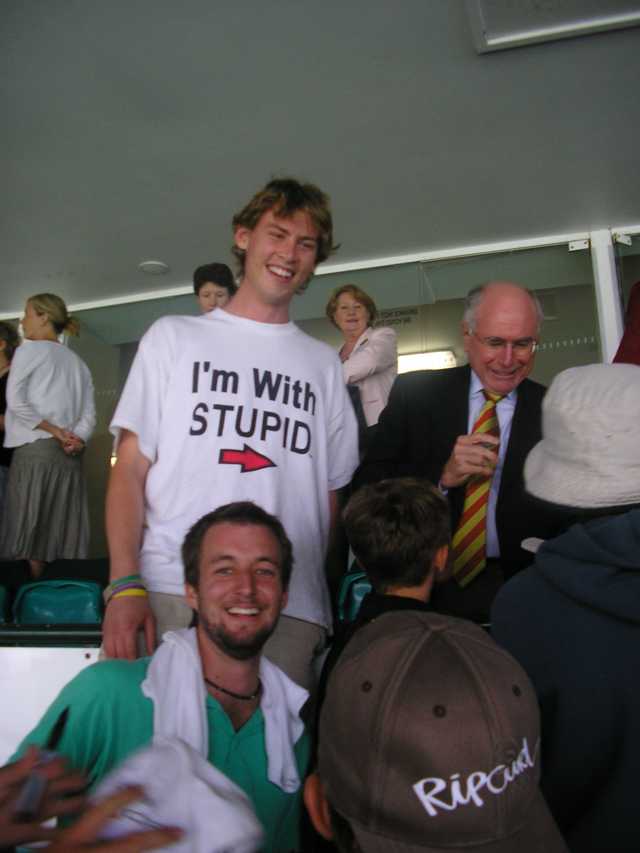the Howard mantra - don't blame us
John Howard has expressed an interest in reading the recently declassified 30 page report on the impact of the Iraq invasion upon 'the war on terror'. Apparently even he himself was unconvinced by his own dismissive remarks about the then-classified report only a few days before.
I must admit that I experienced a near-apoplectic seizure when hearing of Howard's all-too-typical dismissiveness of what appears to be a comprehensive assessment culled from all of the leading national intelligence agencies in the US, on the basis of nothing more than his will-to-believe-otherwise. Howard, though, is a brilliant populist, and he has quickly realised that his initial reaction had a air of head-in-the-sand arrogance which needed to be amended.
Of course he couldn't help but add, after some 'consideration', a while later, that these were the some of the same people who provided false advice about WMDs before the invasion.
Blame-shifting has been a very common feature of Howard's incumbency. It's an established fact that the Bush administration, keen to go after Saddam Hussein even before the September 11 attacks, was very selective and indeed manipulative in its dealings with the intelligence community regarding WMDs in Iraq and the threat that Iraq posed to America. Both these issues – the push to invade
To return, though to the Howard tactics. I can’t help but notice a pattern. Avoid responsibility, shift the blame onto others whenever possible, and present yourself and your government as the well-intentioned dupe of the unscrupulous or merely incompetent. Take at least three issues – the
As to the
The AWB scandal speaks for itself. Of course Howard was as shocked as we all have been to learn of the AWB’s self-serving duplicity, and it’s surely only co-incidental that the government has a strong interest in not being tainted by any knowledge of the AWB’s behaviour, and this of course had nothing to do with the fact that various government ministers ‘overlooked’ countless warnings, from such diverse sources as Australian grain farmers and US government and UN representatives, about AWB practices. Didn’t the sheer volume of suspicions alert them? No, they all sing from the same song-sheet, we were just too confident in the uprightness and fair-dealing of a company we were all proud of. But they duped us and let us down.
As to The ET situation, some months ago I read this report, referred to in an earlier post that more or less captures my view on this issue. I was appalled to hear Howard’s near-contemptuous remarks about the ET government’s difficulties during the Alkatiri crisis, and his willingness to blame that government for financial and security problems not entirely of its own making. The hardships faced by that government were and still are enormous, far beyond anything Howard and his cronies have had to face. The above-mentioned report, written just as the first ET government was being formed, outlines what the Australian government could and should do to help. It’s not an unrealistic document in terms of expenditure and commitment, but needless to say, the advice has been largely ignored. Easier just to blame the victim – we did all that for them, and still they can’t look after themselves. Another version of the Howard mantra.
Labels: politics







